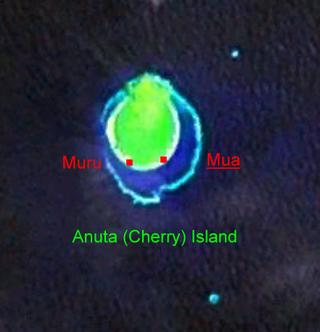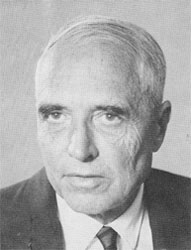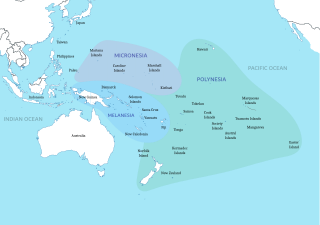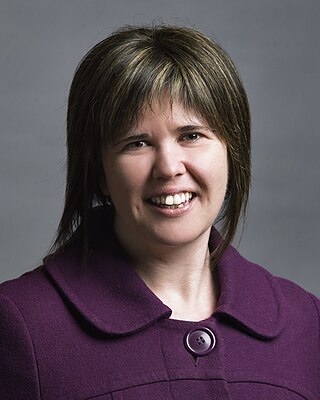
Oceania is a geographical region including Australasia, Melanesia, Micronesia, and Polynesia. Outside of the English-speaking world, Oceania is generally considered a continent, while Mainland Australia is regarded as its continental landmass. Spanning the Eastern and Western hemispheres, at the centre of the water hemisphere, Oceania is estimated to have a land area of about 9,000,000 square kilometres (3,500,000 sq mi) and a population of around 46.3 million as of 2024. Oceania is the smallest continent in land area and the second-least populated after Antarctica.

Melanesia is a subregion of Oceania in the southwestern Pacific Ocean. It extends from New Guinea in the west to the Fiji Islands in the east, and includes the Arafura Sea.

Pacific Islanders, Pasifika, Pasefika, Pacificans, or rarely Pacificers are the peoples of the Pacific Islands. As an ethnic/racial term, it is used to describe the original peoples—inhabitants and diasporas—of any of the three major subregions of Oceania or any other island located in the Pacific Ocean.
Polynesians are an ethnolinguistic group comprising closely related ethnic groups native to Polynesia, which encompasses the islands within the Polynesian Triangle in the Pacific Ocean. They trace their early prehistoric origins to Island Southeast Asia and are part of the larger Austronesian ethnolinguistic group, with an Urheimat in Taiwan. They speak the Polynesian languages, a branch of the Oceanic subfamily within the Austronesian language family. The Indigenous Māori people form the largest Polynesian population, followed by Samoans, Native Hawaiians, Tahitians, Tongans, and Cook Islands Māori.

Anuta is a small volcanic island in the province of Temotu in the southeastern part of Solomon Islands. It is one of the smallest permanently inhabited Polynesian islands. It is one of the Polynesian Outlier communities in Melanesia.

Tikopia is a volcanic island in Temotu Province, in the independent nation of Solomon Islands, southwestern Pacific Ocean. Although most of Solomon Islands is Melanesian, Tikopia is culturally Polynesian. Its remoteness has enabled much of its culture to persist. One overview calls it "arguably the most thoroughly documented small-scale society in the ethnographic record".

The Admiralty Islands languages are a group of some thirty Oceanic languages spoken on the Admiralty Islands. They may include Yapese, which has proven difficult to classify.

Sir Peter Henry Buck, also known as Te Rangi Hīroa or Te Rangihīroa, was a prominent New Zealand anthropologist and an expert on Māori and Polynesian cultures who served many roles through his life: as a physician and surgeon; as an official in public health; as a member of parliament; and ultimately as a leading anthropologist and director of the Bishop Museum in Hawaii.
The Manus languages are a subgroup of about two dozen Oceanic languages located on Manus Island and nearby offshore islands in Manus Province of Papua New Guinea. The exact number of languages is difficult to determine because they form a dialect continuum. The name Manus originally designated an ethnic group whose members spoke closely related languages and whose coastal dwellers tended to build their houses on stilts out over the sea.
Patrick Vinton Kirch is an American archaeologist and Professor Emeritus of Integrative Biology and the Class of 1954 Professor of Anthropology at the University of California, Berkeley. He is also the former Curator of Oceanic Archaeology in the Phoebe A. Hearst Museum of Anthropology, and director of that museum from 1999 to 2002. Currently, he is professor in the department of anthropology at the University of Hawai'i Manoa, and a member of the board of directors of the Bishop Museum.

Samuel Hoyt Elbert was an American linguist who made major contributions to Hawaiian and Polynesian lexicography and ethnography. Born on a farm in Des Moines, Iowa, to Hoyt Hugh Elbert and Ethelind (Swire) Elbert, Sam grew up riding horses, one of his favorite pastimes well into retirement. After graduating from Grinnell College with an A.B. in 1928, he earned a certificate in French at the University of Toulouse and traveled in Europe before returning to New York City, where he waited tables, clerked for a newspaper, reviewed books, and studied journalism at Columbia University. Wanderlust took him to French Polynesia, first to Tahiti and then to the Marquesas, where he quickly became proficient in Marquesan. In 1936, he went to work for the United States Geological Survey in Hawaiʻi. There he met researchers on Pacific languages and cultures at the Bishop Museum, chief among them Mary Kawena Pukui, from whom he learned Hawaiian and with whom he worked closely over a span of forty years. When war broke out in the Pacific, the U.S. Navy employed him as an intelligence officer studying the languages of strategically important islands. He was posted to Samoa in 1943, then to Micronesia, where he collected and published wordlists for several island languages.

Polynesia is a subregion of Oceania, made up of more than 1,000 islands scattered over the central and southern Pacific Ocean. The indigenous people who inhabit the islands of Polynesia are called Polynesians. They have many things in common, including linguistic relations, cultural practices, and traditional beliefs. In centuries past, they had a strong shared tradition of sailing and using stars to navigate at night.
Nuguria (Nukuria) is a Polynesian language, spoken by approximately 550 people on Nuguria in the eastern islands of Papua New Guinea. The language was taught in primary schools in Nuguria and was used for daily communications between adults and children. Nuguria is one of the eighteen small islands to the east of Papua New Guinea, which are known as the Polynesian Outliers. The Nukuria language has been concluded to be closely related to other nearby languages such as Nukumanu, Takuu, Nukuoro, and Luangiua. Research on the Nuguria Atoll and the language itself is scarce; past research demonstrated that this language was at risk of potential endangerment. The language was only then classified as at risk of endangerment because it was still used between generations and was passed on to the children. However, recent research indicates that Nukuria is now most likely an extinct language.

The Holy Cross Cathedral, also referred to as the Catholic Cathedral of Honiara, is the cathedral church and seat of the Metropolitan Archdiocese of Honiara. It is located in the city of Honiara, which is on Guadalcanal Island and is the capital of the Solomon Islands, a country in the southwest Pacific Ocean.
Lissant Mary Bolton is an Australian anthropologist and the Keeper of the Department of Africa, Oceania and the Americas at the British Museum. She is particularly known for her work on Vanuatu, textiles, and museums and indigenous communities.
Rhys Morgan Richards is a former New Zealand diplomat and a current historian and ethnographer. He has written extensively on maritime history and Pacific artifacts and art. He has also spoken on these subjects on New Zealand radio and at many conferences and seminars around the world.

The civilian population, culture and infrastructure of Melanesia, Micronesia and Polynesia were completely changed between 1941 and 1945 because of the logistical requirements of the Allies in their war against Japan. At the start of the war some of the islands had experienced up to 200 years of colonialism from Europe and its colonies, some on the verge of being fully annexed, others close to independence. The early Japanese expansion through the western Pacific then introduced a new colonial system to many islands. The Japanese occupation subjected the indigenous people of Guam and other Pacific Islands to forced labor, family separation, incarceration, execution, concentration camps, and forced prostitution.
John "Jock" Cromar (1859/1860–1942) was a Scottish-Australian seaman and author, who wrote the book Jock of the Islands, a supposed retelling of his experiences in Melanesia during the late 19th century. Described by Charles Morris Woodford as a "derelict of the labor trade", Cromar was for several decades active in the recruiting industry in the Solomon Islands.

Atholl John Anderson is a New Zealand archaeologist who has worked extensively in New Zealand and the Pacific. His work is notable for its syntheses of history, biology, ethnography and archaeological evidence. He made a major contribution to the evidence given by the iwi (tribe) Ngāi Tahu to the Waitangi Tribunal.

Angela Cheryl Wanhalla is a professor of history at the University of Otago in New Zealand. Her book about interracial marriage in New Zealand won the 2014 Ernest Scott Prize. Wanhalla was elected as a Fellow of the Royal Society Te Apārangi in 2022.













